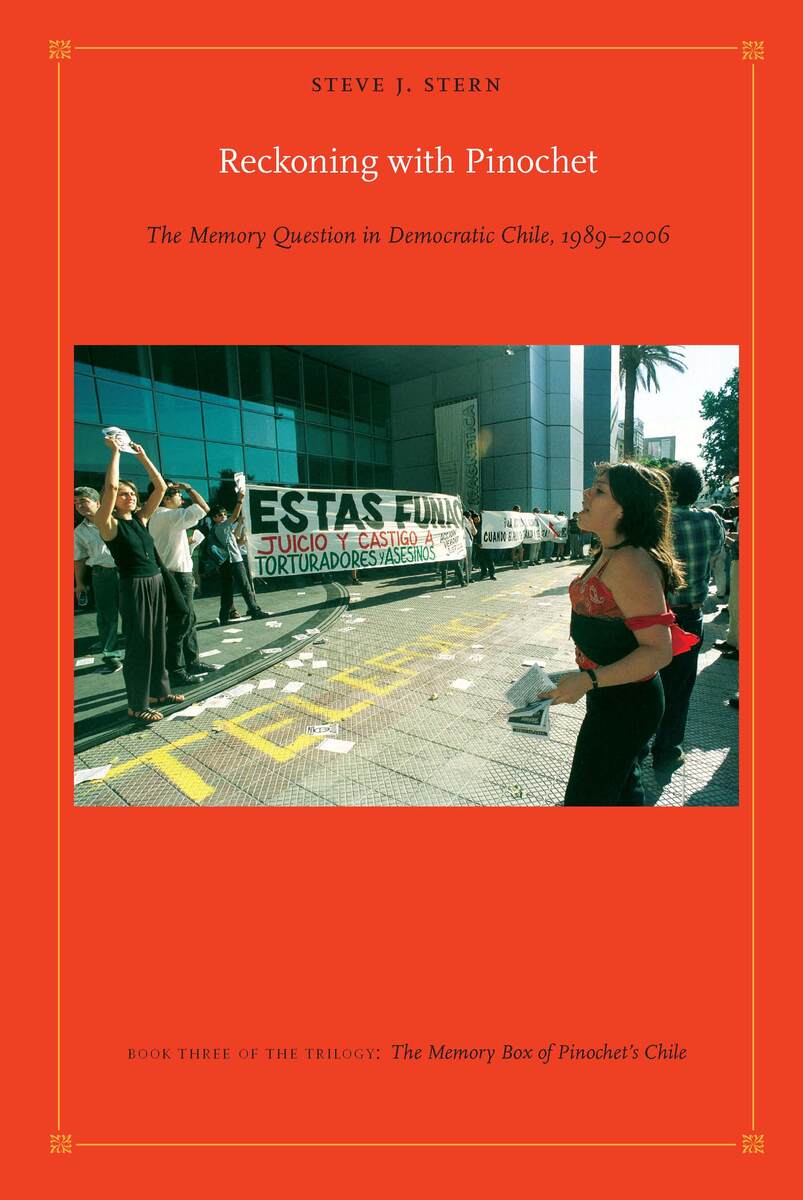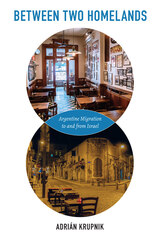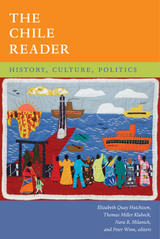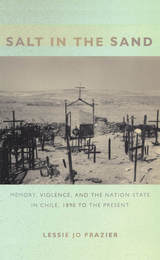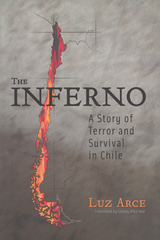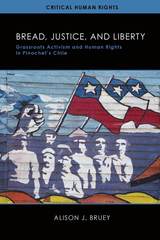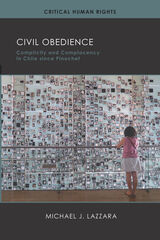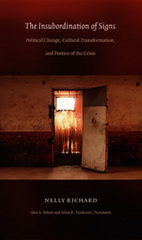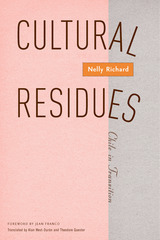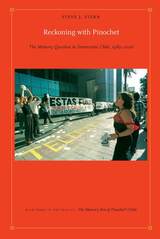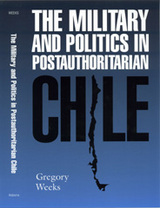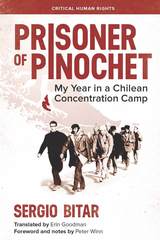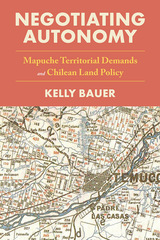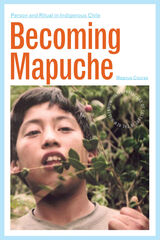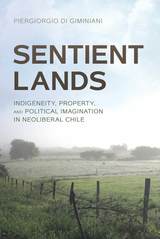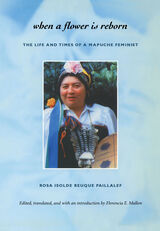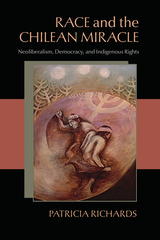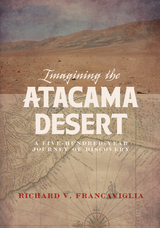“In this well-researched book, Stern covers the broad swath of history from the end of the Pinochet regime to Pinochet’s condemnation by the international community to Chile’s leadership under Bachelet. . . . [T]he book’s greatest strength is its elucidation of symbolic acknowledgment as a form of memory politics by both the state and local community. . . . Recommended. Upper-division undergraduates and above.” - R. L. Bowman, Choice
“With this book, Stern has completed a monumental trilogy, begun with Remembering Pinochet’s Chile (2004) and continued in Battling for Hearts and Minds (2006). . . . Perhaps Stern’s greatest achievement lies in maintaining a human perspective: there are many personal testimonies throughout these pages that complement, represent, and at times contradict or qualify his judgments. . . . In the end, this is a story about the deepest questions, and Stern never resorts to facile shock-tactics, never plays tricks on the reader, and always insists that something very big and deeply human is at stake.” - Paul Grant, Books and Culture
“Reckoning with Pinochet is an elegantly written, comprehensive account of Chile’s memory struggle during its transition to democracy. The book, and the trilogy of which it is a part, should be required reading for all students of Latin America who are interested in contemporary political and historical issues, particularly in processes of authoritarian backlash, democratization, and memory construction. Steve Stern is a master storyteller who manages to combine rigorous historical analysis with firsthand knowledge of Chile that is so detailed the context is palpable.” - Michael J. Lazzara, A Contracorriente
“Stern’s now-completed trilogy is a remarkably varied, multi-disciplinary, and well-researched study of the Chilean memory question and recent history in general. It provides a number of insightful frameworks to describe the relationships between history, memory, and politics in the process of democratic reconstruction. By virtue of its clear explanations and graceful prose, it is well-suited for any readers interested in Chile or general issues of human rights and memory studies. It lays the foundation for more work in cultural and literary studies, and will surely remain one of the most important works in the field for years to come.” - Patrick Blaine, e-misférica
“Reckoning with Pinochet is the best account of the trajectory of historical memory under Chile’s restored democracy from 1989 until 2006, and a revealing window on that era and its democratic transition. It reflects Steve J. Stern’s comprehensive knowledge of this period in Chile’s history and his empathetic sensibility, which enables him to see the issues he discusses through the eyes even of people with whom he profoundly disagrees.”—Peter Winn, editor of Victims of the Chilean Miracle: Workers and Neoliberalism in the Pinochet Era, 1973–2002
“This is a master work on what has proved to be one of the late twentieth century’s key events: Chile’s transition from General Pinochet’s brutal rule to a growing promise of democracy. But it is much more. Steve J. Stern not only convincingly argues that the transition was made possible by a fierce battle over the ‘memory’ of Pinochet’s rule and a ‘healthier, accountable democracy,’ but concludes by placing this struggle in a profound global context: in the early 1970s many nations began a historic shift toward human rights concerns and democracy, a shift on which Chile’s experience has had a major, and reciprocal, influence.”—Walter LaFeber, Andrew H. and James S. Tisch Distinguished University Professor Emeritus, Cornell University
“Reckoning with Pinochet is an essential work on post-dictatorship Chile and on the implications of the Chilean case for the global struggle for human rights.”
-- Brian Loveman Hispanic American Historical Review
“In terms of disciplinarity, the book reaches beyond Stern's own background as a historian, in a valuable and largely successful effort to break new ground in offering a social history of memory. Political scientists, cultural and memory studies specialists and ethnographers will each find echoes of their own preoccupations here. . . . Stern ranges widely and confidently through high politics, grassroots organising, cultural history, legal change and even popular song and theatre to make his point about the need for a comprehensive history of memory to be truly social. It is not necessary to agree with all aspects of his interpretive framework to be duly impressed with the scope of the achievement.”
-- Cath Collins Journal of Latin American Studies
“This well-written, superbly researched, and important book is a ‘must read’ not only for Latin American specialists but also for all those interested in how historical memory affects the way any nation and its peoples come to understand and to deal with their past.”
-- Richard J. Walter American Historical Review
“Reckoning with Pinochet is an elegantly written, comprehensive account of Chile’s memory struggle during its transition to democracy. The book, and the trilogy of which it is a part, should be required reading for all students of Latin America who are interested in contemporary political and historical issues, particularly in processes of authoritarian backlash, democratization, and memory construction. Steve Stern is a master storyteller who manages to combine rigorous historical analysis with firsthand knowledge of Chile that is so detailed the context is palpable.”
-- Michael J. Lazzara A Contracorriente
“In this well-researched book, Stern covers the broad swath of history from the end of the Pinochet regime to Pinochet’s condemnation by the international community to Chile’s leadership under Bachelet. . . . [T]he book’s greatest strength is its elucidation of symbolic acknowledgment as a form of memory politics by both the state and local community. . . . Recommended. Upper-division undergraduates and above.”
-- R. L. Bowman Choice
“Stern’s now-completed trilogy is a remarkably varied, multi-disciplinary, and well-researched study of the Chilean memory question and recent history in general. It provides a number of insightful frameworks to describe the relationships between history, memory, and politics in the process of democratic reconstruction. By virtue of its clear explanations and graceful prose, it is well-suited for any readers interested in Chile or general issues of human rights and memory studies. It lays the foundation for more work in cultural and literary studies, and will surely remain one of the most important works in the field for years to come.”
-- Patrick Blaine e-misférica
“With this book, Stern has completed a monumental trilogy, begun with Remembering Pinochet’s Chile (2004) and continued in Battling for Hearts and Minds (2006). . . . Perhaps Stern’s greatest achievement lies in maintaining a human perspective: there are many personal testimonies throughout these pages that complement, represent, and at times contradict or qualify his judgments. . . . In the end, this is a story about the deepest questions, and Stern never resorts to facile shock-tactics, never plays tricks on the reader, and always insists that something very big and deeply human is at stake.”
-- Paul Grant Books & Culture
